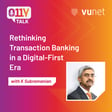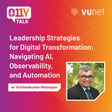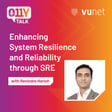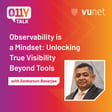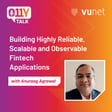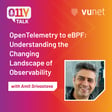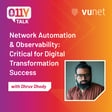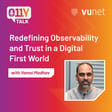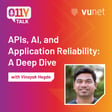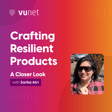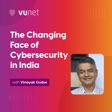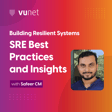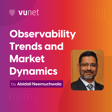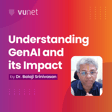
Episode 4: The Impact of Digital Transformation on Banking and Payments in the Middle East
This episode of Observability Talk focuses on the effects of digital transformation on the banking and payments industry in the Middle East Region and the importance of observability in navigating these changes. We’ll discuss how observability can be crucial in optimizing digital transformation efforts.
We’re joined by Osama Ben Saleh Bukhari, CEO of AlFaris International Group, a leading IT Business Solutions and Services company based in Saudi Arabia. Osama is also the Head of the Banking Commission for the Saudi International Chamber of Commerce.
In this episode, Osama brings a wealth of experience to share insights on how FinTechs are changing the Banking Landscape in the Middle East, what's keeping CXOs up at night, the evolution of Monitoring Platforms, and shares cautionary signs of relying too much on GenAI.
Also Check Out
* Al Faris International - https://www.alfarisinfo.com/#home-section
* Osama on LinkedIn - https://www.linkedin.com/in/osama-ben-saleh-bukhari-8164295/
